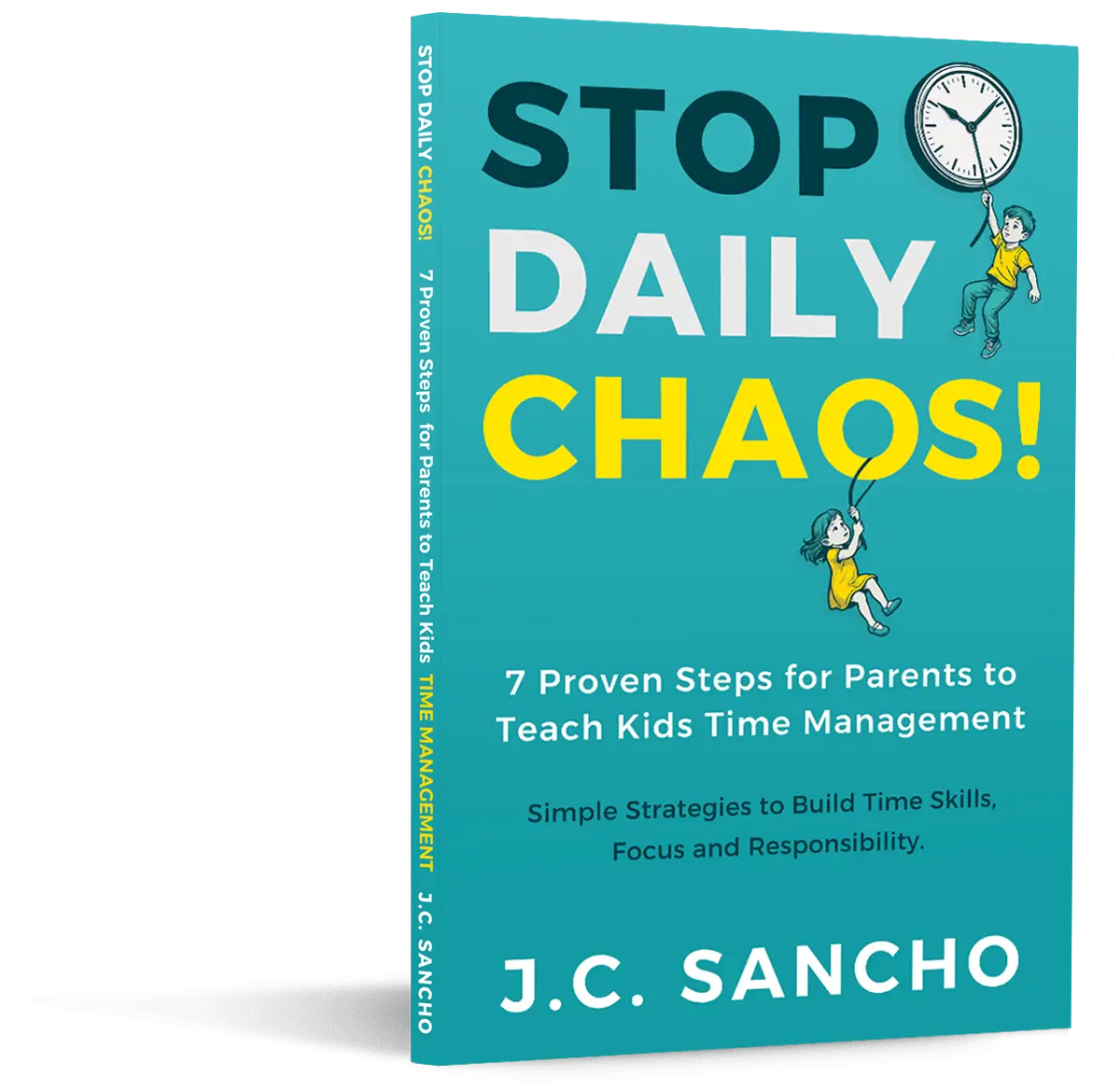Parenting teenagers can feel like walking a tightrope between holding on and letting go. On one side lies the instinct to protect them from every stumble; on the other, the knowledge that too much control can stunt their growth. The challenge is teaching them responsibility — real, internalized responsibility — without hovering over their every move.
As parents, our ultimate goal isn’t to raise children who rely on us for every answer. It’s to raise young adults who trust themselves to make good decisions, recover from bad ones, and manage life with confidence. Striking that balance requires trust, communication, and a gradual handoff of responsibility.
Why Teen Independence Matters More Than Ever
Independence isn’t just about freedom — it’s about competence. When teens are given room to make choices, handle consequences, and manage parts of their lives, they begin to see themselves as capable and resourceful. That sense of autonomy is the foundation of confidence and maturity.
Modern research reinforces this. Studies from the American Psychological Association show that teens who are allowed to make age-appropriate decisions and face the natural outcomes of those choices develop stronger self-esteem and better emotional regulation. Conversely, teens raised under constant supervision — the so-called “helicopter parenting” model — often report higher anxiety and lower problem-solving ability.
In short: independence teaches resilience, while overprotection teaches dependence.
The Signs of Helicopter Parenting
Most parents who hover don’t mean to. It often comes from love — or fear. You might recognize these tendencies in yourself:
- Frequently stepping in to solve your teen’s problems before they try themselves
- Micromanaging homework, grades, or friendships
- Making decisions on their behalf “for their own good”
- Feeling anxious when they face challenges without your involvement
- Trying to prevent all discomfort, disappointment, or risk
While each of these actions may seem helpful in isolation, collectively they send a subtle message: “I don’t trust you to handle this.” Over time, that can undermine a teenager’s confidence and decision-making ability.
Fostering Responsibility Without Hovering
Teaching responsibility requires a blend of trust and structure. You don’t have to remove all guardrails — just shift your role from manager to mentor.
Here are proven strategies to help your teen grow while keeping your relationship strong.
1. Let Them Make Decisions — and Live With Them
Start small. Let your teen make choices about everyday things like what to wear, how to decorate their room, or what to cook for dinner. Gradually, expand the decisions to include school electives, part-time work, or how to manage free time.
When a decision leads to a mistake, resist the urge to rescue immediately. A forgotten lunch or missed homework deadline might sting — but that discomfort is what builds accountability.
Parent tip: Instead of saying, “I told you so,” ask reflective questions:
- “What do you think went wrong?”
- “What might you do differently next time?”
This helps them develop internal problem-solving rather than relying on external direction.
2. Encourage Independent Problem-Solving
When your teen encounters a problem — academic, social, or emotional — pause before offering advice. Ask guiding questions instead:
- “What options do you have?”
- “What’s the outcome you’d like?”
- “How could you handle it if that doesn’t work out?”
By prompting them to think critically, you strengthen their confidence and reasoning. If they ask for your opinion, share it — but let them own the final decision.
Remember, growth often comes from discomfort. Watching your teen struggle is hard, but allowing it is an act of trust.
3. Teach Financial Responsibility Early
Money management is one of the most practical forms of independence. Introduce your teen to budgeting, saving, and spending wisely. Give them a small monthly allowance or encourage part-time work so they can experience real financial cause and effect.
Ideas to build financial habits:
- Open a simple bank account they manage under your supervision.
- Teach them to split earnings into categories: save, spend, give.
- Discuss wants versus needs and how impulse spending affects long-term goals.
By managing their own money, they’ll learn discipline, patience, and foresight — qualities that spill into other areas of responsibility.
4. Promote Accountability — Without Shame
Responsibility grows through experience, not fear. When your teen makes a mistake, avoid punishment that disconnects or humiliates. Instead, focus on logical consequences and repair.
Example:
If they neglect chores, pause privileges until they’re completed. If they break a commitment, have them take steps to make amends — write an apology, fix what was damaged, or talk it through.
The key is maintaining empathy. Say, “I know you didn’t mean for this to happen, but it’s important we fix it.” This approach reinforces accountability while preserving trust.
5. Create Space for Natural Consequences
Life is a better teacher than any lecture. When appropriate, let your teen face the real-world outcomes of their choices.
- If they procrastinate on homework, let them experience the grade consequences.
- If they overspend, let them wait until next month’s allowance.
- If they oversleep, let them handle a late slip with the teacher.
Intervening too early teaches avoidance. Allowing natural consequences teaches ownership. Your job is not to prevent every fall — it’s to help them stand back up with dignity and awareness.
6. Set Clear Boundaries and Expectations
Freedom without limits can feel like chaos. Teens thrive on clear expectations — they just don’t always admit it.
Work together to define what independence looks like in your home.
For instance:
- Curfew rules that extend with consistent responsibility
- Screen time guidelines based on trust, not surveillance
- Driving or social privileges earned through reliability
Communicate these expectations calmly and consistently. Boundaries show love — they say, “I care about your safety, and I trust you enough to give you structure.”
7. Keep Communication Open and Respectful
Strong communication is the antidote to helicoptering. Instead of constant monitoring, aim for meaningful check-ins. Ask, “How’s school feeling this week?” rather than “Did you finish your homework?”
When conversations feel supportive rather than interrogative, teens are far more likely to open up. They learn that you’re their ally, not their warden.
If your teen shares a problem, avoid reacting with panic or judgment. Stay calm, thank them for being honest, and ask what kind of help — if any — they want. Sometimes, just listening is the greatest form of support.
8. Model Responsibility in Your Own Life
Teens absorb behavior more than advice. They notice how you manage commitments, handle mistakes, and treat others.
Let them see you:
- Admit when you’re wrong and take responsibility
- Balance work, rest, and relationships
- Follow through on promises — even small ones
Your consistency teaches them that responsibility isn’t about perfection; it’s about integrity.
Navigating the Fine Line: Guiding Without Controlling
Every parent wrestles with the balance between guidance and autonomy. The secret lies in knowing when to step in — and when to step back.
Here’s a quick mental check:
- Step in when safety, legality, or long-term well-being is at stake.
- Step back when the situation involves learning, effort, or natural consequences.
Being present doesn’t always mean being involved. Sometimes, the best support is silent observation and trust that your teen will find their footing — with you as their safety net.
Dealing With Rebellion and Mistakes
Even the most well-balanced households experience pushback. Teens will test boundaries; it’s how they learn independence. When rebellion happens, stay calm and consistent.
Avoid power struggles or lectures. Instead, treat missteps as part of their developmental path. Frame mistakes as opportunities to learn, not reasons to punish.
Try this approach:
- Pause before responding in anger.
- Ask what they learned from the experience.
- Offer guidance if they’re open — or space if they’re not yet ready.
Teens grow best in environments that blend structure with compassion.
Parent FAQs on Raising Responsible Teens
Q1: What’s the biggest risk of helicopter parenting?
It can delay emotional growth. Teens who are overprotected often struggle with self-confidence and decision-making once they’re on their own.
Q2: How do I know if I’m giving too much freedom?
If your teen’s safety, academics, or respect for family rules begin to decline, it’s time to recalibrate. Independence should always align with demonstrated maturity.
Q3: Should I let my teen fail?
Within reason, yes. Controlled failure builds resilience. The key is being supportive during recovery, not preventing every fall.
Q4: How do I stay connected as they pull away?
Focus on shared experiences — meals, car rides, small rituals. Connection comes through consistency, not control.
Q5: What if my teen refuses responsibility?
Revisit expectations, reduce privileges tied to accountability, and maintain calm consistency. Progress comes through repetition and patience.
Raising responsible, independent teens doesn’t mean stepping back entirely — it means stepping back wisely. You are not abandoning your role as guide; you’re evolving it from protector to coach.
Your teen doesn’t need perfection; they need presence. They need to know you believe in their capacity to learn, fail, recover, and thrive.
By balancing structure with trust, and oversight with autonomy, you teach them one of life’s most powerful lessons: that responsibility is not about control, but about character.
Further Reading: Psychology Today – How to Help Your Child Be More Independent



